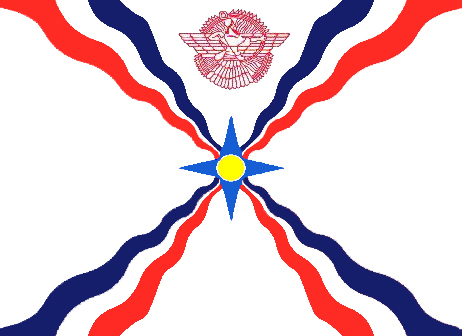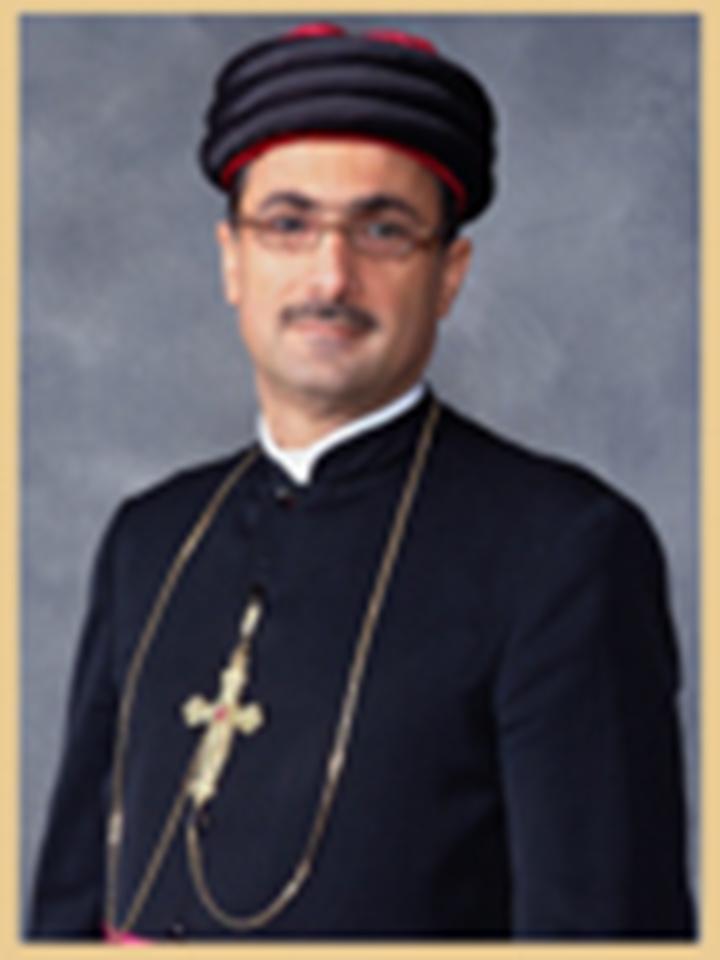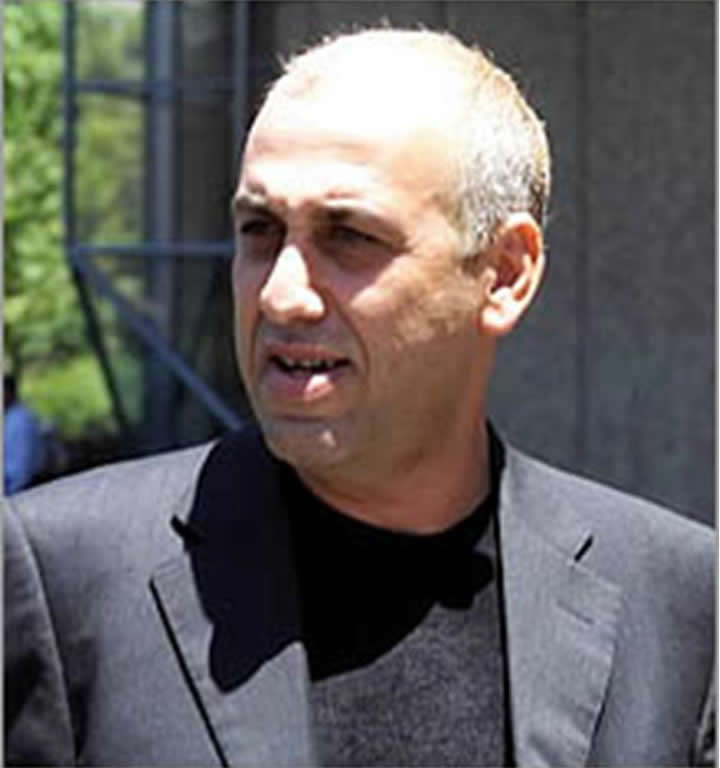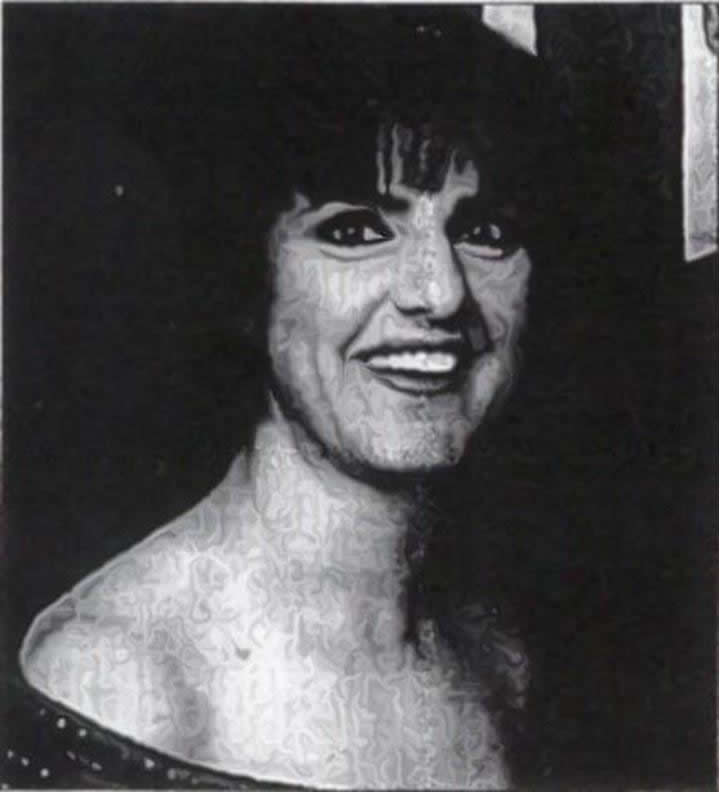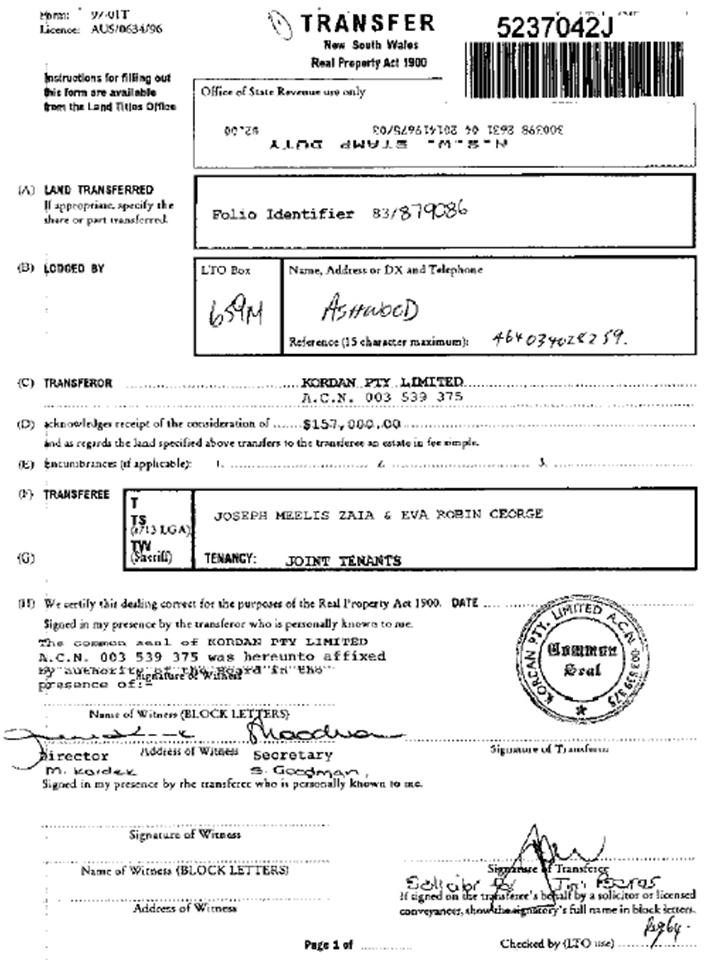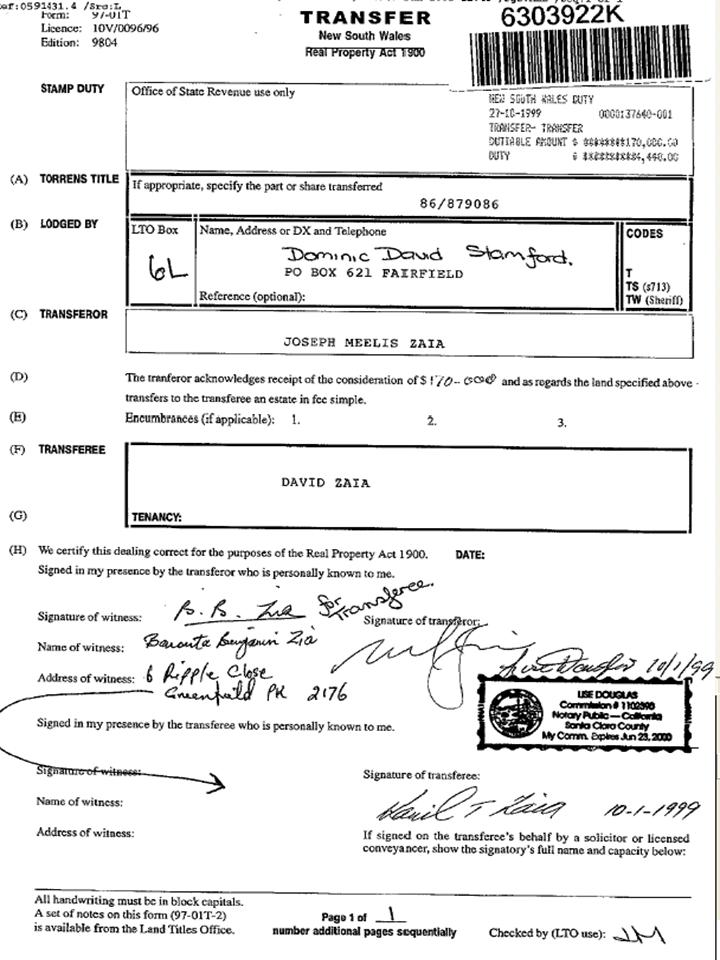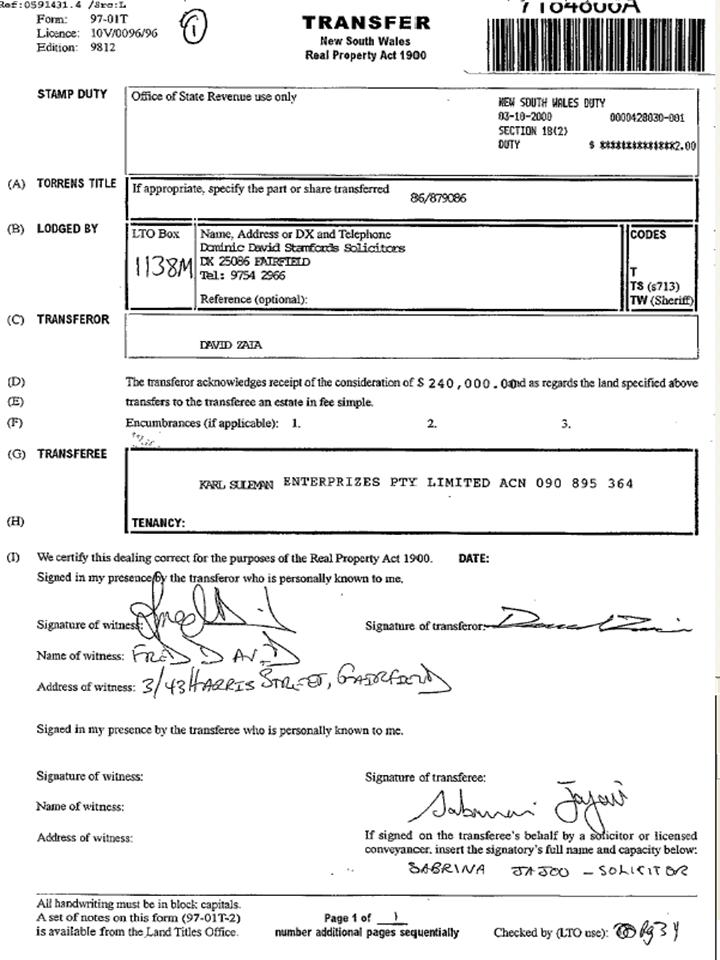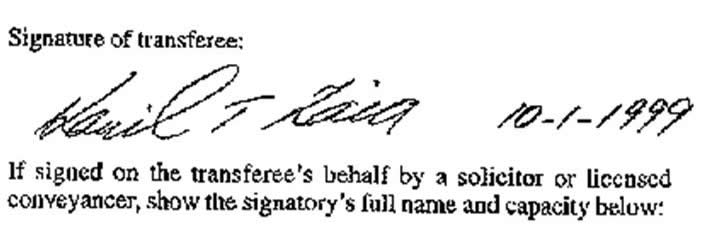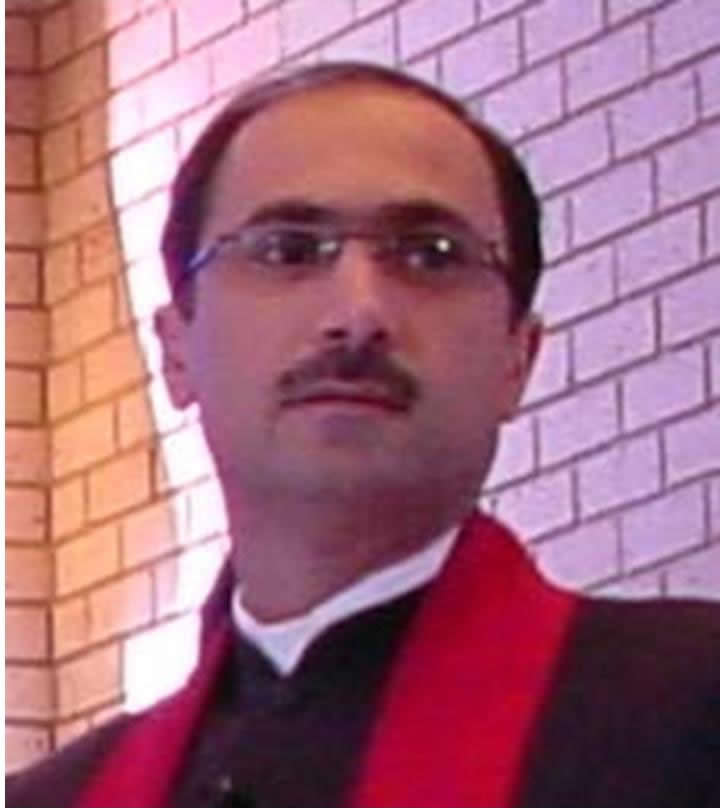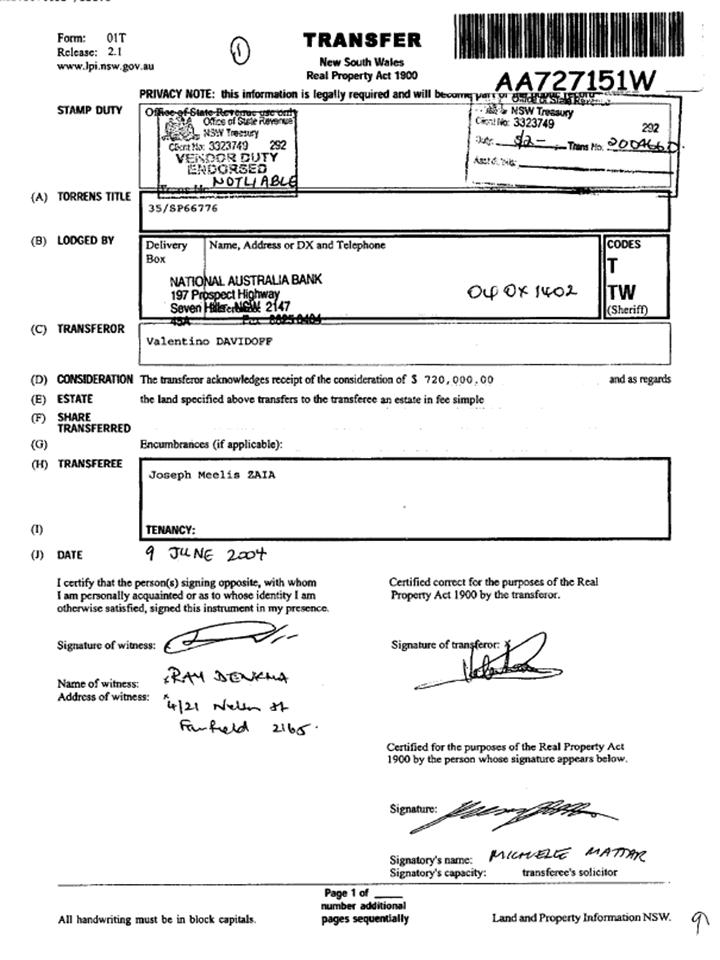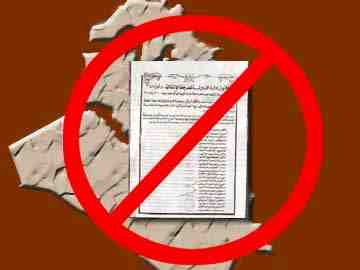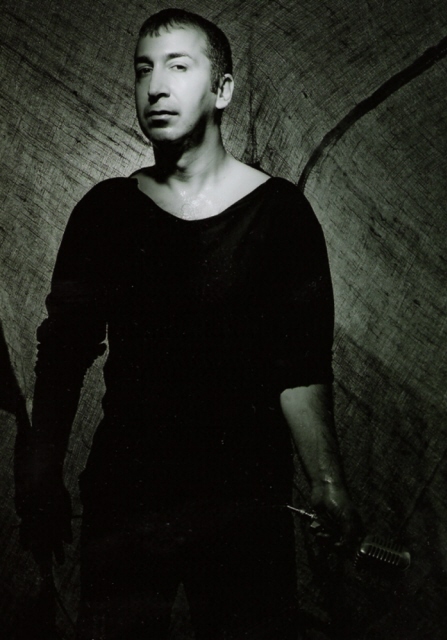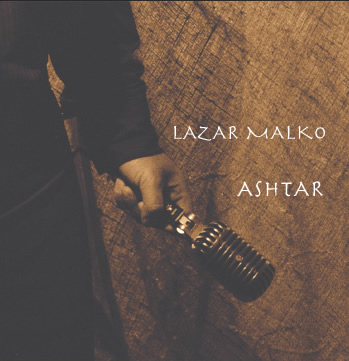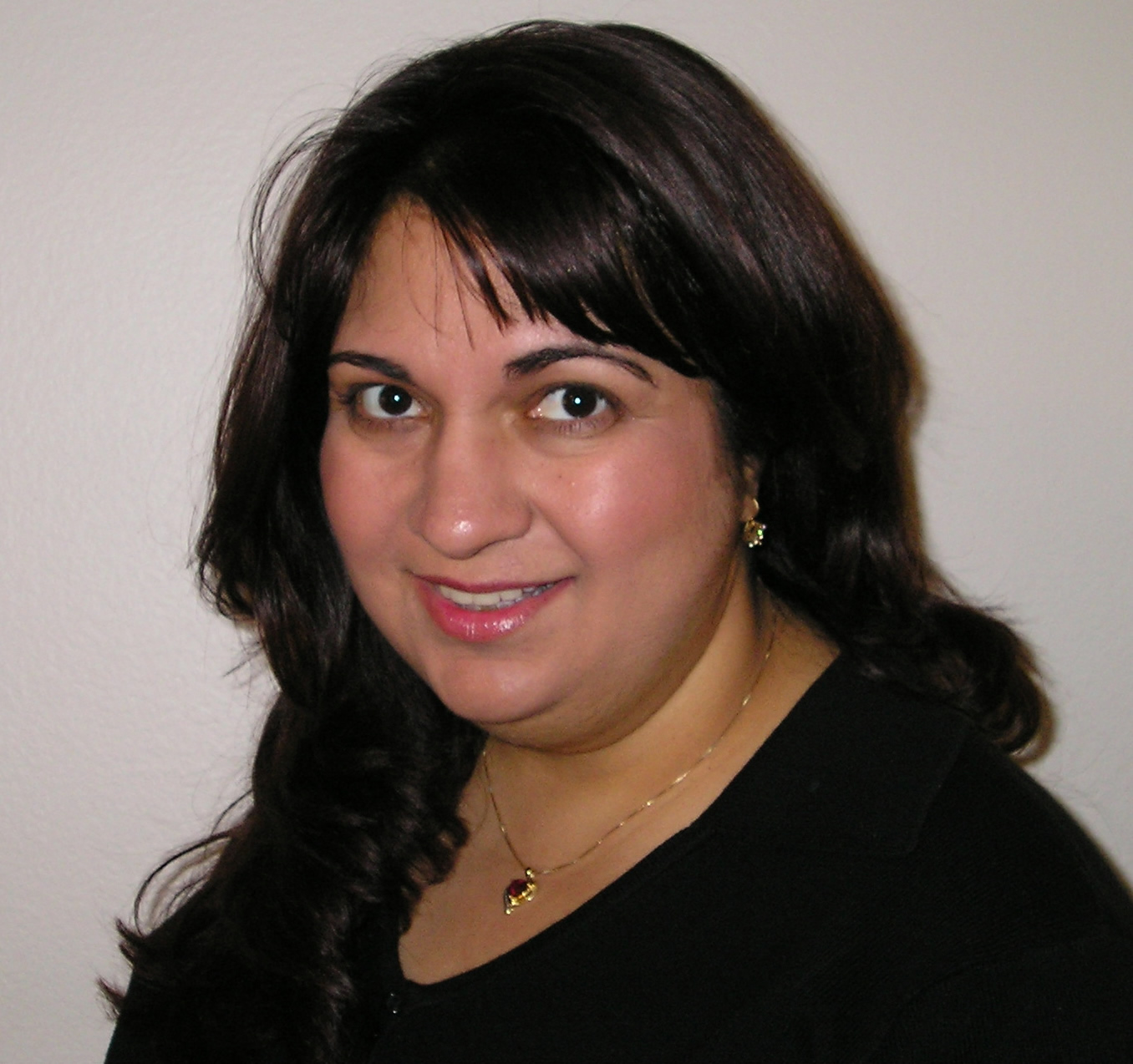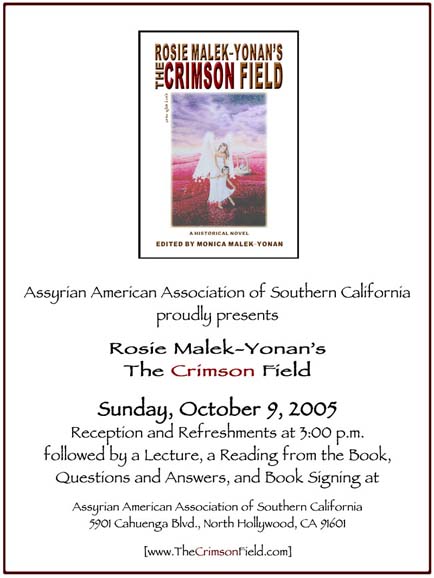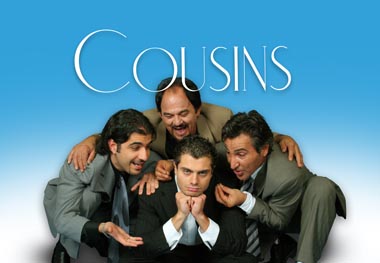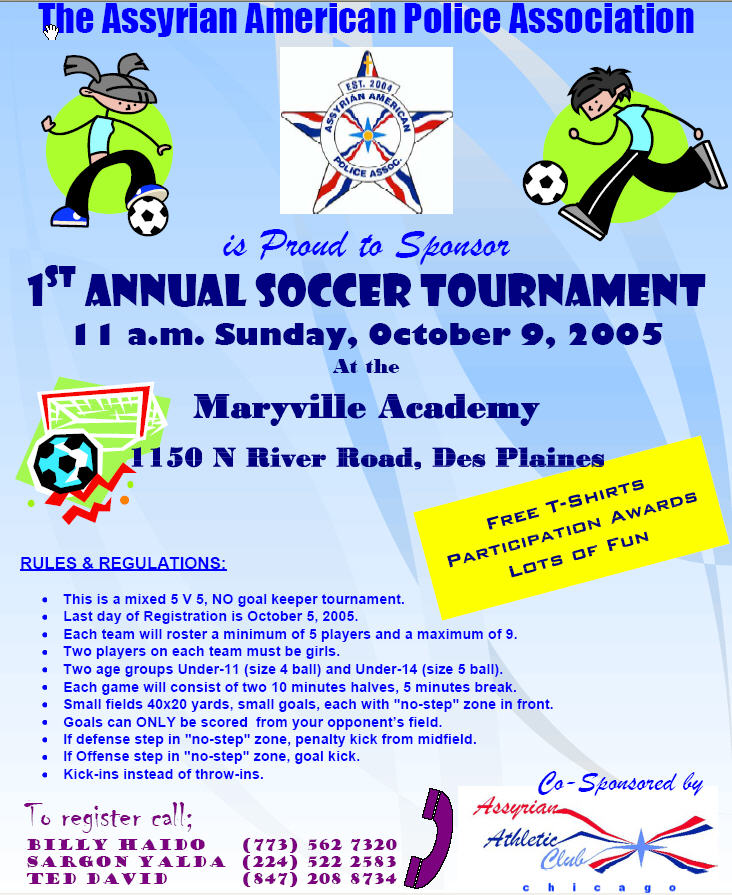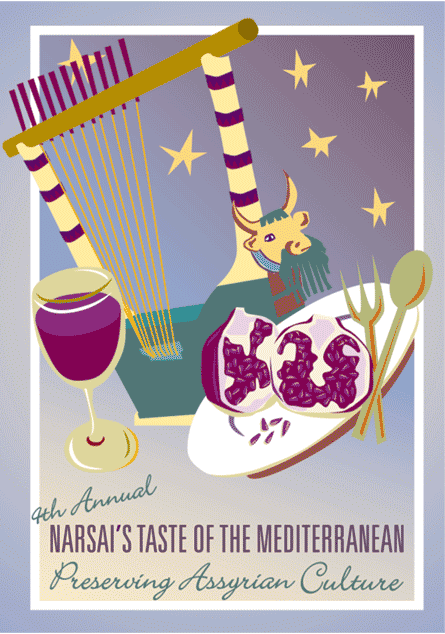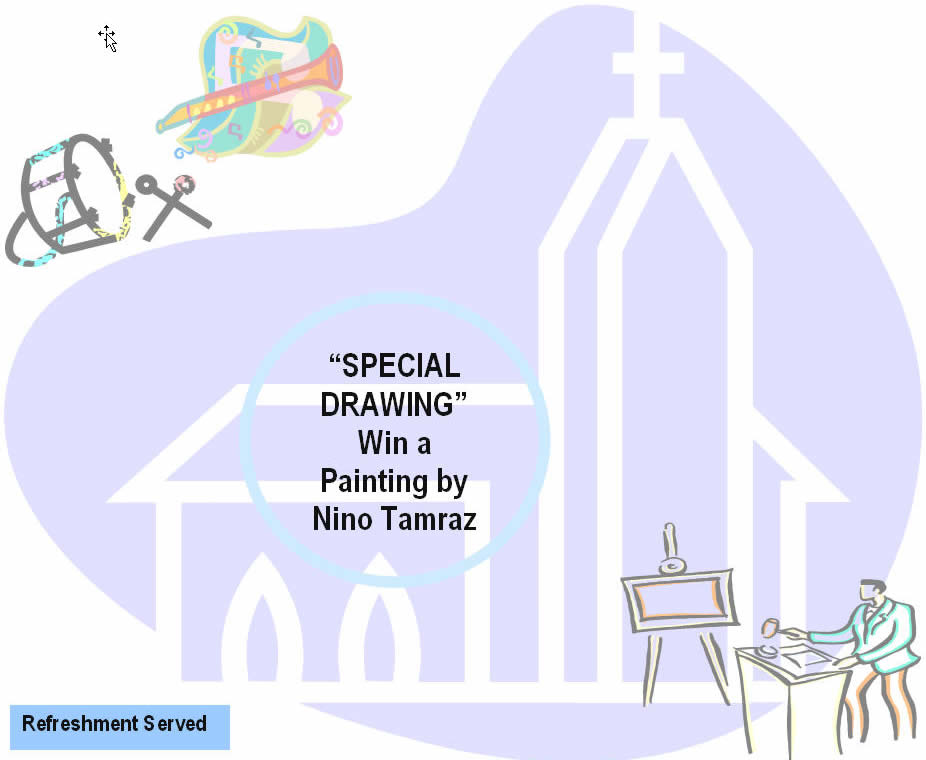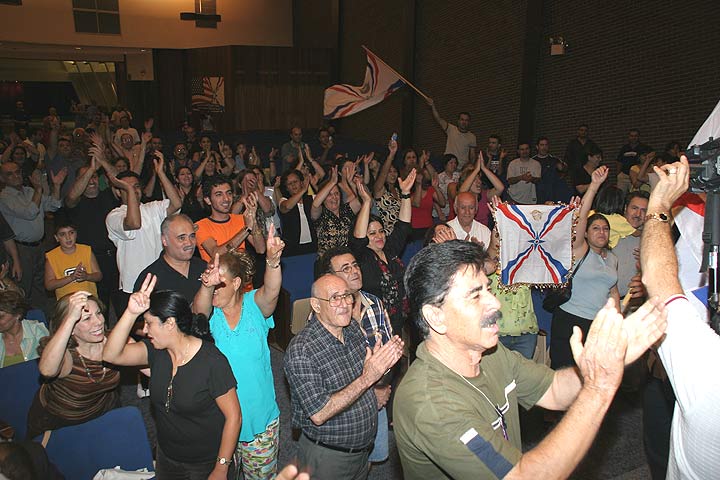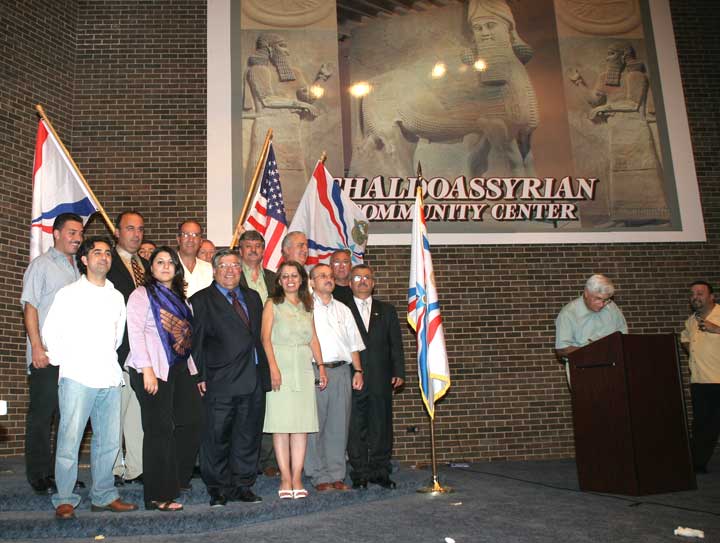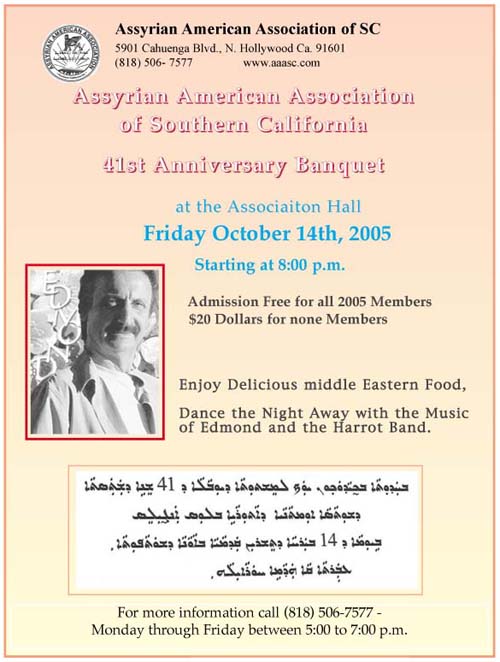Chastity, Poverty & Obedience
The Forgotten Vows of Bishop Mar Meelis Joseph Zaia
A Special Zinda Investigative Report
"No one can serve two masters; for either he will hate the one and love the other, or he will be devoted to the one and despise the other. You cannot serve God and mammon." (Matthew 6:19-24 RSV)
|
| Bishop Mar Meelis Joseph Zaia in better days |
Formal promises of poverty, celibate chastity, and obedience made by members of religious communities are called vows. The vow of poverty means that members hold all things in common. The community takes care of their needs. The vow of celibate chastity means that a person promises not to get married or have sexual relations. Obedience means searching for and seeking to accomplish God's will in the context of the Scripture, the Church, and the community.
Upon being consecrated as Bishop of the Assyrian Church of the East, at St. George (Mar Gewargis) Church on 22
October 1984, Joseph Meelis Zaia put his hand on the Holy Bible and swore to adhere to God given laws and these very same vows.
|
Convicted criminal Karl Suleman |
In Zinda’s January 13, 2005 issue an investigative article titled, ‘The Hood, the Bad & the Holy,’ revealed the full details of how over 2,000 Assyrian investors were misled and deceived by Karl Suleman into losing their lifelong savings and assets, with the assistance of Suzy David and Bishop Mar Meelis Joseph Zaia.
Since then convicted criminal Karl Suleman has finished serving his 18 month prison sentence only to be charged with new charges that have arisen as a result of the ongoing Australian Security Investment Commission (ASIC) investigation, in relation to the failed KSE scheme.
|
Former Deputy Secretary General, Suzy David, ignominiously left the AUA for her part in the illegal Ponzi scheme. |
Mr Suleman in currently on bail and is apparently trying to get Legal Aid assistance to defend 15 counts of making false statements as well as 17 counts of using false documents.
Meanwhile after being removed from her position as Secretary Deputy General of the Assyrian Universal Alliance (AUA), Suzy David and her brother Fred David are currently in the New South Wales Supreme Court facing claims for professional negligence for their affairs and dealings in the illegal Karl Suleman Enterprizes (KSE) scheme.
In this article we turn our attention to Bishop Joseph Mar Meelis Zaia.
Fact 1: Mar Meelis Zaia was 5% shareholder of Froggy
The infamous Froggy Holdings was one of the companies used to raise money from unsuspecting Assyrian investors.
The first source document, taken from the Australian Securities & Investments Commission’s (ASIC) titled ‘Historical Personal Extract’ is for [Mar Meelis] Joseph Zaia. Let’s ignore the fact that the search also shows that Jospeh Zaia was previously a director of GTZ Trading Pty. Ltd, having 9000 shares to his name and used the Assyrian Church of the East’s residence (Bishopric) as his company address, contrary to Church by-laws; it is the second page of this official document which proves beyond a shadow of doubt that Bishop Mar Meelis Zaia owned 5% of shares in Froggy Holdings.[1]
Subsequent media interviews with Mar Meelis Zaia later explained this away by claiming that because the St. Hurmizd Assyrian Primary School was not registered at the time, Mr. Suleman had registered the donated shares in the name of the Bishop in trust for the school. However considering that the Assyrian Church of the East was fully registered religious institution in Australia it is in this writer’s opinion , illogical to claim that the 5% of shares allocated to Mar Meelis Zaia were being held in trust for the school when they could have easily been registered in the Church’s name. Furthermore, as a result of the memorable split of the church of the East in Sydney, instigated by Bishop Mar Meelis Zaia in the late 1980’s, the NSW Parliament introduced legislation which would establish a structure whereby the Church of the East could acquire a hold properties and assets in its name as trustee.[2]
Furthermore, current ASIC extracts reveal that Bishop Mar Meelis Zaia is still the beneficiary of 5% in Froggy Holdings Pty Ltd. This situation begs the question, if indeed as the Bishop claims that these shares where held in trust for the Assyrian School why is he still the sole beneficiary of these shares?
If the Bishop’s claims were indeed correct and the Assyrian School was registered as a Public Company on 21 February, 2002 - one would imagine that the Bishop would have had ample opportunity, between 2002 and now to transfer these shares to the benefit of the Assyrian School.
Fact 2: Mar Meelis Zaia received a company car from KSE given only to KSE architects and agents of the scheme.
In a testimony given by the car dealer, Mr. Damelian, of Rick Damelian Sydney, the court was shown just how generously Karl Suleman rewarded some of his architects and agents. Luxury vehicles were leased for Karl and Vivian Suleman, Roger Hyde, Graeme Sinden, Sam Babanour, Bishop [Mar Meelis] Zaia and Jessie and Romil Koshaba’s wife, Elizabeth George.[3]
The New South Wales Supreme court revealed this startling list during court examinations. Besides showing that Joseph Zaia received a luxury car from KSE, it also clearly shows that Rick Damelian leased cars specifically to KSE agents and architects who, knowingly or unknowingly, implemented the Ponzi scheme. Bishop Mar Meelis Zaia received a BMW 2000 model which he reluctantly returned to the liquidators after the collapse of KSE.
Fact 3: Mar Meelis Zaia openly associated with the architects of the KSE scheme.
In addition to Bishop Mar Meelis Zaia being seen in the company of Karl Suleman, Joseph Zaia was also openly associating with the other architects involved in the KSE scheme. The Karl Suleman phenomenon reached its zenith during the dinner for the former President of the United States, Bill Clinton in September, 2001 before it collapsed. Some of the diners seated at Suleman's table at the Westmead benefit included Rabbi Pincus Woolstone, Nati Stoliar, Suzy David, and the Bishop of the Assyrian Church of the East, Bishop Mar Meelis Zaia.[4]
Fact 4: Mar Meelis Zaia actively promoted Karl Suleman and his “businesses” in the Assyrian Church of the East.
Besides Bishop Zaia being a 5 per cent shareholder in Suleman's Froggy Holdings he was also known as a warm supporter of Suleman's enterprises and efforts to support the Assyrian community.[5]
In fact Bishop Mar Meelis Zaia was the propaganda machine of the KSE Ponzi scheme. He would brazenly stand in the altar and praise the good deeds of Karl Suleman and openly demand that his Assyrian parishioners support Karl Suleman and his “businesses.” This was confirmed by another Assyrian witness interviewed on The Daily Telegraph, “Once cashed up Suleman’s generosity in the community was well known. If an elderly woman needed a new television she would get one. There were many such acts and Assyrians would hear about them from the Bishop Joseph Mar Meelis Zaia, who was a strong supporter of Suleman.”[6]
Fact 5: Fr. Ashur Lazar of the Assyrian Church of the East was a KSE agent.
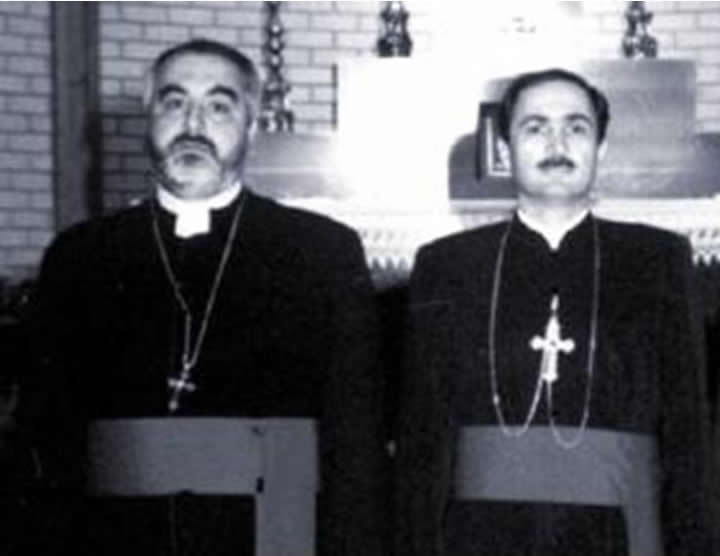 |
| Former KSE agent, Fr. Ashur Lazar, left, also followed in the footsteps of his Bishop. |
A priest from the Assyrian Church of the East, Fr. Ashur Lazar also got involved, personally investing and actively promoting the scheme as an agent, as well as, showing unwavering public support for Karl Suleman. The greed was palpable and he was even rumoured to promote the scheme at church functions he presided over, including funerals! “I noticed that even the priests’ brothers were involved and they were making good money,” said Eddie David after borrowing $150,000 to invest in the scheme.[7]
Fact 6: Mar Meelis Zaia used his brother’s name, David Zaia, to financially benefit from the KSE Ponzi scheme.
To understand the intricate background of how Mar Meelis Joseph Zaia used his brother’s name to purchase property we need to chronologically study a whole series of property transactions to ascertain the true picture of this fact.
29th July, 1997
Bishop Mar Meelis Zaia appointed Director of GTZ Trading Pty Ltd, having a total of 9,000 shares. The registered business address of his company was the Assyrian Church of the East owned Bishopric located in 25 Edinburgh Circuit, Cecil Hills, Sydney. This residence is owned by the Assyrian Church of the East and therefore the Bishop used this for his personal and business purposes contrary to church by-laws; conducting personal business from church owned property [8].
17th June, 1998
Joseph Meelis Zaia and Eva Robin George purchase a property in Cecil Hills, Sydney for the sum price of $157,000; Eva Robin George being a known divorcee of the singer Raa’d Zaia.
A close analysis of the transfer document (obtained from the extracts of the Department of Lands – Land & Property Information) of this purchase between Bishop Mar Meelis Zaia and Eva Robin George reveals that the Bishop and Eva owned the property as Joint Tenants. This means that upon the death of one joint-owner, that owner’s share or interest in the property will automatically be transferred to the surviving owner. A Joint Tenant agreement is the usual way that married couples and those in de facto relationships acquire property.[9]
25 September, 1998
Three months later Bishop Joseph Meelis Zaia personally purchases another property in Cecil Hills denoted by the title reference 86/879086 for the sum of $165,000. Cecil Hills is now a highly developed area with soaring property prices.[10]
June, 1999
Bishop Mar Meelis Zaia is approached by prominent members of the Assyrian community in Sydney, notably, Anwar Khoshaba, Dinkha Warda, Phillimon Darmo amongst others, raising serious concerns with the Bishop that he is known to be having relations with a known divorcee, namely, Eva Robin George. He adamantly denies this claiming that he simply bought the property to assist her as a friend. If as Mar Meelis Zaia claims he was assisting her then he could’ve easily arranged for a ‘Tenants in Common’ agreement also acceptable under Australian law.
22 September, 1999
Having been exposed co-owning property with Eva Robin George; Bishop Mar Meelis Zaia undertakes steps to distance his name from the shameful transaction. Bishop Mar Meelis Zaia does this by transferring his share in the Cecil Hills property to Eva Robin George as sole owner, for the nominal amount of $1.00 (worth by current market trends at least $450,000) – denoting the serious standing of their relationship.[11] Current property searches reveal that Eva Robin George is still the proprietor of the property.
27 October, 1999
Learning from his past mistakes and in an effort to hide his property dealings Bishop Mar Meelis Joseph Zaia, decided it was prudent to transfer his other Cecil Hills Property which he owned solely to the name of his brother, David T. Zaia, who resides in California, USA – in order to whitewash his dealings.
The transfer is legally signed by David T. Zaia on 1 October, 1999 and notarised by an American Justice Notary Public, who has signed and stamped it with his official stamp[12].
4 May, 2000
The infamous Froggy Holdings Pty. Ltd. is registered in Australia.
Karl Suleman, first makes his appearance on the scene, and with the help of Suzy David begins to initiate the KSE Ponzi scheme on the unsuspecting Assyrian community in Sydney.
3 October, 2000
Bishop Mar Meelis Zaia (aka David Zaia) transfers the property, owned by his brother, David T. Zaia, who resides in California to Karl Suleman Enterprizes (KSE) for the sum of $240,000[13].
All this was apparently witnessed by another of the KSE architects and solicitor, Fred David of Dominic David Stamfords (now David Legal), while his wife, Sabrina Jajoo, acted for the transferee being Karl Suleman Enterprizes.
We note however that the signatures on the transfer of the previous transaction and this current transaction, of David T. Zaia, are not identical.
Would the real David T. Zaia please step forward?
The signature witnessed by Fred David is not that of the legitimate proprietor, namely, David T. Zaia, as the composition of both signatures is starkly different.
a. This current transaction is signed David Zaia without his middle initial.
b. The transaction has been deliberately left undated by Fred David specifically for the purpose of covering this startling forgery from anyone investigating the transaction,
c. Professional hand writing experts have examined both signatures and are adamant that they have not been written by the same person.
These discrepancies raise serious questions as to the authenticity of this transaction.
In fact it is believed that David T. Zaia’s signature has been forged and this begs the questions of who actually signed this document, and is the Bishop in full collusion as to this possibly fraudulent transaction involving David T. Zaia’s so-called signature, which has apparently been witnessed by Fred David?
Besides the glaring forgery the third page of this property title transfer is of extreme interest to the reader for another more important reason. The third page shows how this very same property, which was then sold at $240,000, was later transferred from Bishop Mar Meelis’s brother, David Zaia, to KSE and used to provide the initial “seed money” for the Ponzi scheme by way of an investment contract.
According to the Coudert Brothers - legal advisors for liquidators Horwath - the October 3, 2001 transaction had given Bishop Mar Meelis Zaia, through his brother David Zaia, a significant return on his investment. The money began rolling in. From October 2000 to June 2001, David Zaia was entitled to receive about $90,000 worth of payments under the investment contract[14].
In June 2001, a new agreement was struck whereby Karl Suleman said he would draw a new contract for $450,000. David Zaia began receiving money as repayments under the new contract but no contract was ever drawn up[15].
The total amount of receipts was in the order of $62,000 up to $64,000 paid by Karl Suleman between August 2001 to October 2001; Bishop Mar Meelis Zaia received, on behalf of David Zaia, roughly $9,000 cash cheques per fortnight, which amounted to $18,000 per month[16].
Samuel David (the Bishop's uncle) would apparently cash the cheques and the Bishop would take the cash to Westpac Bank for transfer to an account in the United States in the name of David Zaia (aka Mar Meelis Zaia) [17].
June, 2002
|
| Bishop Joseph Mar Meelis Zaia used his brother David T. Zaia as his proxy. |
Months before the KSE scheme collapsed, David Zaia (aka Mar Meelis Joseph Zaia) suddenly decided he wanted to “cash up” the contract. David Zaia apparently enters into a contract for sale of the land in order to purchase a Pyrmont apartment for the sum value of $360,000.
He apparently follows Karl Suleman’s advice when Suleman suggested to David Zaia (aka Mar Meelis Zaia) that the money be reinvested in a unit on 11 Bunn Street, Pyrmont (Sydney). In court proceedings property developer, Mr. Waitsman gave evidence in relation to Jewish Property Developer Nati Stoliar regarding property developments and investment options apartments in located at “Bunn Street Apartments” 20 Bunn St, Pyrmont to Mr. Suleman, and to Bishop Zaia or his brother, David [18].
The units were being developed by a Joint Venture between 2 companies: Metro Apartments and Kimberley Securities, of whom Nati Stoliar is a director of Kimberley Securities, a Jewish run joint-venture. Karl Suleman personally gave the money to Nati Stoliar for the purpose of David Zaia purchasing the unit.
Bishop Zaia advised that David Zaia was still receiving payments after the sale of Unit 11 to him because the property had not been transferred.[19] KSE liquidators have since placed a caveat on the property. The caveat has been placed on the property because money gained from the KSE scheme was used to purchase the property and the liquidator is seeking to recover these funds for the benefit of Assyrian creditors who were defrauded by the illegal scheme.[20]
According to Horwath, Karl Suleman’s former employer, Joe Prestia, continues to be Bishop Mar Meelis Zaia's advisor in relation to David Zaia’s transaction. In fact, Joe Prestia had been assisting Mar Meelis Zaia in refinancing and purchase deals for the Assyrian Church of the East and decided to assist Mar Meelis Zaia.
Referring to people who had received money from the KSE scheme, the Daily Telegraph on 11th April, 2002 reported, “One such individual is the bishop of the Holy Apostolic Assyrian Church of the East, Mar Meelis Zaia. Apparently there’s some cash in an account that’s attracted a letter from the liquidator.”[21]
The liquidators had finally traced the KSE money trail to one of the main architects of the Ponzi scheme; Mar Meelis Joseph Zaia. Subsequently a number of bank statements were delivered to Coudert Brothers by Bishop Zaia. [22]
Substantial donations of money had been made by Karl Suleman to the Assyrian Church of the East. The liquidator requested this from Bishop Mar Meelis Zaia, so that it could be repaid to the benefit of creditors. The Bishop however informed Horwath that the Assyrian Church of the East is not in a position to repay this amount because the church members are not making enough donations to the church. One cannot help but wonder why the church cannot afford to repay this money at a time when the church is expanding its property holdings and projects.
The media reported the ongoing investigation on 14th April, 2002 when the Daily Telegraph once again stated, “Latest among the eminent identities to attract Horwath’s attention is Bishop Mar Meelis Zaia, head of the Holy Apostolic Assyrian Church of the East .”
9 June, 2004
Finally the last of Mar Meelis’s property transactions details another property owned by Mar Meelis Zaia also found in Pyrmont and shows where the proceeds of the scheme may have wound up. The attached title search shows that on 9 June, 2004 Mar Meelis Zaia purchased a penthouse apartment again in Pyrmont, Sydney for the amount of $720,000 .
One cannot help but wonder why a Bishop, who has taken vows of poverty, needs such an opulent apartment, and how he can afford such a property when he is supposed to be on a “humble” allowance.
While numerous victims were forced to either sell their one and only home, or to repay massive debts incurred as a result of the KSE Ponzi scheme, Mar Meelis Joseph Zaia has plans in the future to live in the lap of luxury in his $720,000 Pyrmont apartment, boasting magnificent seaside views.
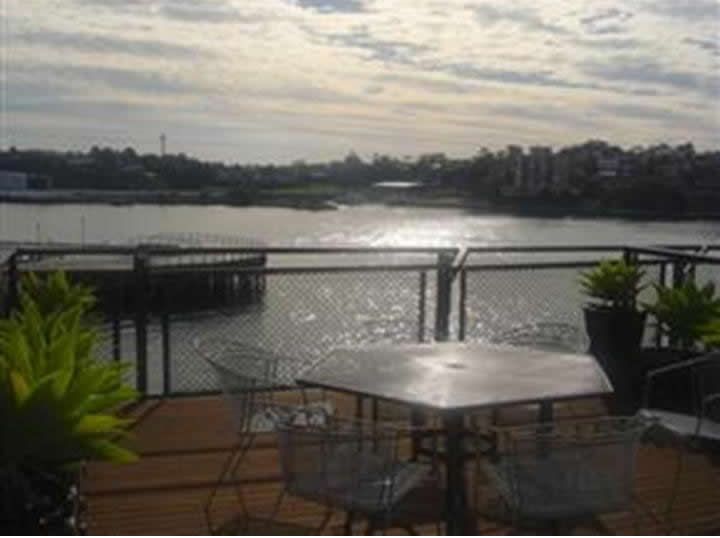 |
| Mar Meelis’s vow of Poverty - the view from his $720,000 luxury apartment in Pyrmont, Sydney. |
The Forgotten Vows
The above mentioned facts and the evidence presented about Bishop Joseph Meelis Zaia clearly speak for themselves. As a Bishop, it is expected that Bishop Mar Meelis Zaia devote his life energies and efforts, just like a nun or monk, to the humble service of the Lord and members of the church. This is the Bishop’s sole purpose of existence and none other.
The Patriarch of the Assyrian Church of the East, Mar Dinkha, has already been informed of his Bishop’s actions and has thus far preferred to ignore the issue hoping by some miracle that it will all be swept under the rug of fear of authority.
Christ reminded his disciples: "...you shall know the truth, and the truth shall make you free."[25]
Whether the majority of the Assyrian Church of the East members in Australia and New Zealand and His Holiness Mar Dinkha IV willingly choose to defy this commandment and ignore the broken vows of Bishop Mar Meelis Joseph Zaia remains to be seen. The truth needs to be aired and justice served, for the 2,000 investors deserve to know the names of the main people responsible for the biggest swindle in modern Assyrian history.
Notes
- Australian Securities & Investments Commission, Historical Personal Extract for Joseph Meelis Zaia [click here].
- Holy Apostolic Catholic Assyrian Church of the East Property Trust Bill [click here].
- KSE Examinations, 5 September, 2002 [click here].
- Leap-frogging to glory and back, Australian Financial Review – 1st December, 2001 [click here].
- Ibid [click here].
- Shattered Dreams, The Daily Telegraph -5th January, 2002 [click here].
- Froggy head’s scheme croaks, Today Tonight television broadcast, 5th December, 2001.
- Australian Securities & Investments Commission, Historical Personal Extract for Joseph Meelis Zaia [click here].
- Mar Meelis Zaia & Eva Robin George Title & Mortgage Agreement - 17 June, 1998 [click here].
- Joseph Meelis Zai second Cecil Hills property title [click here].
- Joseph Meelis Zaia title transfer to Eva Robin George [click here].
- Property transfer from Bishop Mar Meelis Zaia to David Zaia (Page 2) - 29 October 1999 [click here].
- Property transfer from David Zaia to KSE (Page 3) - 30 October 2000 [click here].
- Meeting between Bishop Zaia and Andrew Johnson (also in the presence of Sam Duggan from Coudert Brothers), which took place in July 2002, Horwath Pty. Ltd [click here].
- Ibid
- Ibid
- Ibid
- KSE Examinations - 5th September, 2002 [click here].
- Meeting between Bishop Zaia and Andrew Johnson (also in the presence of Sam Duggan from Coudert Brothers), which took place in July 2002, Horwath Pty. Ltd [click here].
- Title search on Bunn St, Pyrmont – Caveat by Horwath’s Paul Weston & Neil Cussen [click here].
- Suleman and the Bishop, The Daily Telegraph, – 11th April, 2002 [click here].
- Meeting between Bishop Zaia and Andrew Johnson (also in the presence of Sam Duggan from Coudert Brothers), which took place in July 2002, Horwath Pty. Ltd [click here].
- Skeletons in Cupboard, The Daily Telegraph, – 15th April, 2002 [click here].
- Title deed Joseph Zaia Pyrmont - 9th June, 2004 [click here].
- Mathew 6:19-24, RSV

